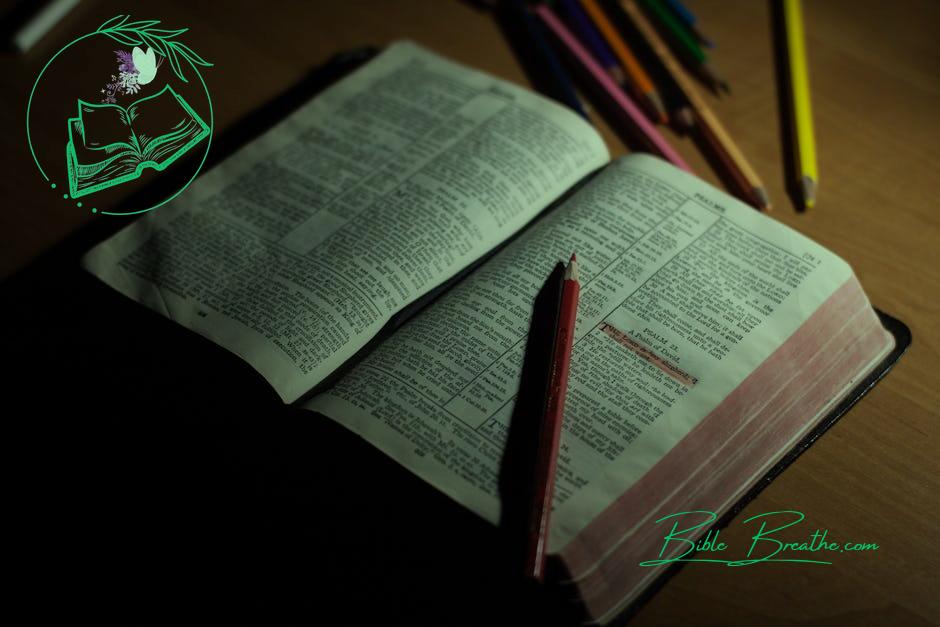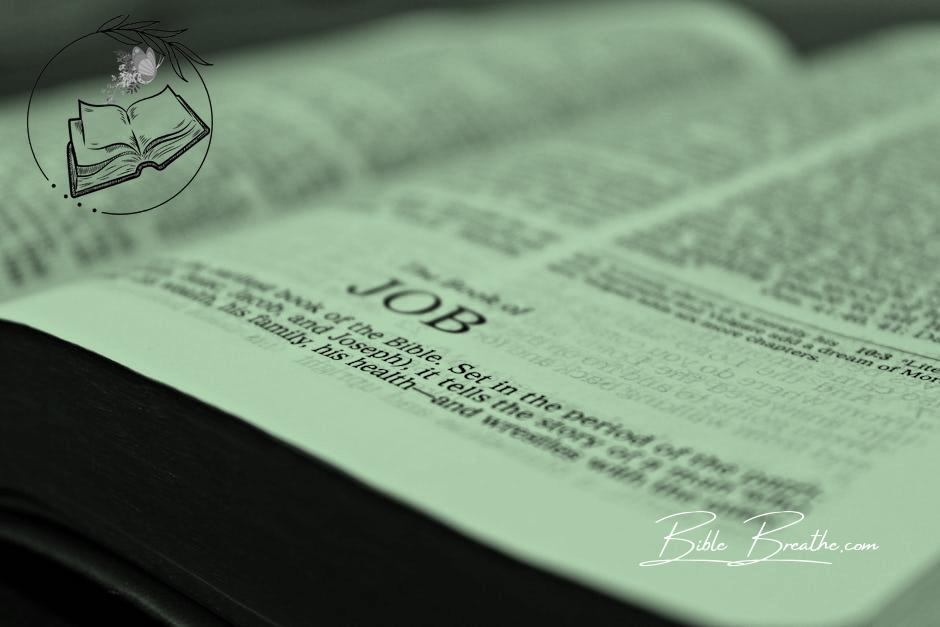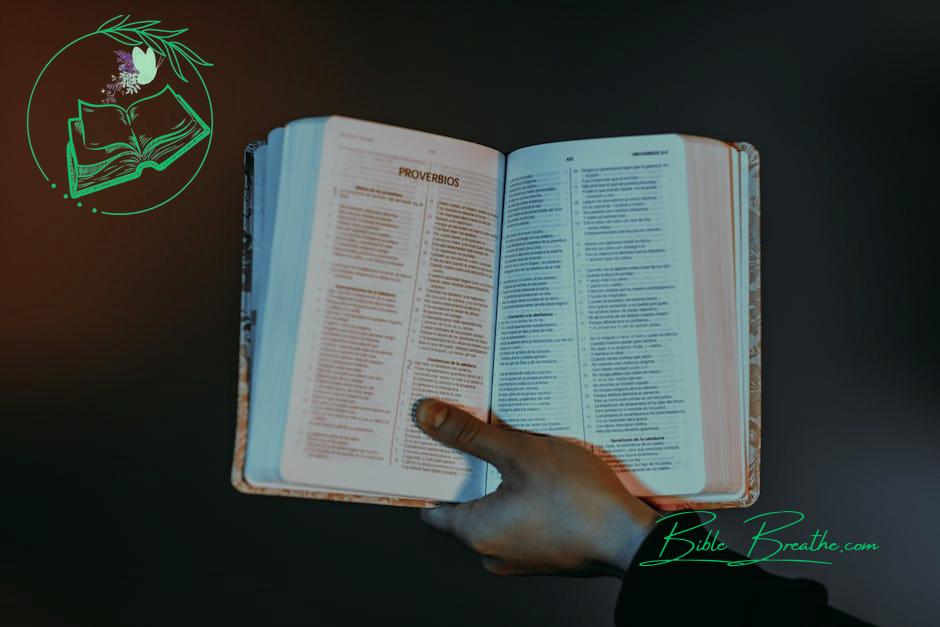Key Takeaways
- The Geneva Bible was banned by King James I of England in 1615 due to its perceived rebellious tone and annotations that challenged the authority of the monarch.
- The Geneva Bible was the first Bible to include referencing with commentary, which made it easier for readers to interpret the scripture themselves, rather than relying on the clergy.
- The annotations in the Geneva Bible were written by Protestant reformers, including John Calvin and William Whittingham, who were critical of the Catholic Church and the English monarchy.
- The Bible’s popularity among the Puritans and other Protestant groups threatened the authority of the Church of England and the monarchy, leading to its ban.
- The ban was also motivated by the fact that the Geneva Bible did not recognize the divine right of kings, which was a key doctrine of the English monarchy at the time.
- The King James Version (KJV) of the Bible was commissioned in part to replace the Geneva Bible and provide a more authoritative, monarch-friendly alternative William Tyndale.
Introduction
History of the Geneva Bible
The Geneva Bible, also known as the “Breeches Bible,” has a rich history that dates back to the 16th century.
Published in 1560, it was the first Bible to include verse divisions, making it easier for readers to navigate and study the scriptures.
This Bible was a collaborative effort between several prominent theologians, including William Whittingham, Anthony Gilby, and Christopher Goodman.
Reasons for its Ban
So, why was the Geneva Bible banned?
Well, it’s no secret that the Geneva Bible was a threat to the authority of the Church of England.
The Bible’s annotations and commentary were seen as anti-Catholic and anti-monarchist, which didn’t sit well with the powers that be.
In fact, the Bible’s preface stated that the king’s authority was limited, and that he was accountable to God – a notion that was deemed treasonous by the English monarchy.
Impact of the Ban
The ban on the Geneva Bible had a significant impact on the spread of Christianity.
Despite the ban, the Bible continued to be printed and distributed in secret, becoming a symbol of protestant resistance against the English monarchy.
The Geneva Bible’s influence can still be seen today, with many considering it the precursor to the King James Version (KJV), one of the most widely read Bibles in the world.
The Geneva Bible: An Overview

Photo modified by BibleBreathe.com. Original photo by John-Mark Smith on Pexels
Background and Origins
Let’s dive into the Geneva Bible, a Bible translation that’s often overlooked but packs a punch.
The Geneva Bible was first published in 1560, a time when the Reformation was in full swing. It was a collaborative effort between John Calvin and other Protestant leaders who wanted to create a Bible that was accurate, accessible, and faithful to the original texts.
Significance of the Geneva Bible
So, why is the Geneva Bible a big deal?
- First Bible to include commentary: The Geneva Bible was the first to include notes and commentary to help readers understand the text. This was a game-changer for ordinary people who wanted to dig deeper into God’s Word.
- Influence on the King James Version: The Geneva Bible’s influence can be seen in the King James Version (KJV), which was published later in 1611. In fact, the KJV borrowed heavily from the Geneva Bible’s translation and commentary.
- Puritan favorite: The Geneva Bible was a favorite among the Puritans, a group of English Protestants who sought to reform the Church of England. They appreciated the Bible’s doctrinal precision and exegetical insights.
Differences with Other Versions
What sets the Geneva Bible apart from other versions?
- Calvinistic tone: The Geneva Bible has a distinct Calvinistic tone, which reflects John Calvin’s theological views. This can be seen in the commentary and notes that accompany the text.
- More literal translation: The Geneva Bible is known for its more literal translation of the original texts, which makes it a great resource for serious students of the Bible.
- No bowdlerization: Unlike some other versions, the Geneva Bible doesn’t shy away from difficult passages or harsh language. It presents the Bible in all its raw, unvarnished glory.
The Political Context of the Ban
Religious Tensions in England
You know how it is when different groups can’t agree on something? Well, that’s exactly what was happening in England back in the 16th century.
Protestants and Catholics were at odds, each trying to assert their dominance. It was a volatile time, with religious tensions running high.
Imagine being a Christian back then, trying to navigate these treacherous waters. It’s no wonder the Geneva Bible became a lightning rod for controversy.
Role of the Monarchy
The monarchy played a huge role in all this. You see, Queen Elizabeth I was a Protestant, but she was also a master politician. She knew how to walk the tightrope between different religious factions.
But King James I, who came after her, was a different story. He was a die-hard Anglican, and he saw the Geneva Bible as a threat to his authority.
Theological Debates
Theological debates were raging at the time, with Calvinists and Anglicans on opposite sides. The Geneva Bible, with its Calvinistic leanings, was seen as a challenge to the Anglican Church.
It’s like trying to mix oil and water – these two groups just couldn’t seem to get along. And the Geneva Bible was caught right in the middle.
Blessed are they which are persecuted for righteousness’ sake: for theirs is the kingdom of heaven.” (Matthew 5:10, KJV)
This verse reminds us that following God’s truth can sometimes lead to persecution. The Geneva Bible was a casualty of these theological debates, but its legacy lives on.
Theological Reasons for the Ban

Photo modified by BibleBreathe.com. Original photo by Pixabay on Pexels
Criticisms of the Geneva Bible
The Geneva Bible was a game-changer in the 16th century, but it wasn’t without its critics.
One of the main reasons it was banned was because of its ** annotations and commentary**.
These notes, written by Calvinist scholars, were seen as too radical and anti-monarchical for the Church of England.
In fact, the Church saw the Geneva Bible as a threat to their authority, and they didn’t like that one bit.
Puritan Influence
The Puritans, a group of English Protestants, were heavily influenced by the Geneva Bible.
They saw it as a way to reform the Church of England from within, and they weren’t afraid to speak out against what they saw as corruption and idolatry.
The Church of England, on the other hand, saw the Puritans as a threat to their power and authority.
Church of England’s Response
So, what did the Church of England do in response to the Geneva Bible and the Puritans?
They banned the Geneva Bible, of course!
But that wasn’t all – they also suppressed Puritan writings and persecuted Puritan leaders.
It was a tough time to be a Puritan in England, that’s for sure.
| Church of England’s Response | Why |
|---|---|
| Banned the Geneva Bible | Saw it as a threat to their authority |
| Suppressed Puritan writings | Didn’t want to give Puritans a platform |
The Bishops’ Bible: A Replacement
Background and Origins
So, why did the Geneva Bible get banned?
Well, it all started with the Bishops’ Bible, a new translation commissioned by the Church of England in 1568.
This Bible was meant to be a more “official” version, one that would counter the Geneva Bible’s popularity among the common folk.
The Church of England wanted a Bible that would cement their authority, and the Bishops’ Bible was their answer.
Comparison with the Geneva Bible
But how did the Bishops’ Bible stack up against the Geneva Bible?
Let’s just say it was a bit of a David and Goliath story.
The Geneva Bible was known for its concordance, study notes, and verses that challenged the Church’s authority.
The Bishops’ Bible, on the other hand, was more of a traditional translation, without all the extra bells and whistles.
It was like comparing a freedom fighter to a 政府 institution – the Geneva Bible was all about giving power to the people, while the Bishops’ Bible was about maintaining the status quo.
Impact on the Ban
So, what did this mean for the Geneva Bible?
Well, the Church of England saw it as a threat, and they weren’t afraid to crack down.
In 1611, the King James Version (KJV) was published, and it became the new “official” Bible of the Church of England.
The Geneva Bible was effectively banned, and its popularity began to wane.
But here’s the thing: the Geneva Bible’s impact was already felt, and its legacy lived on.
As John F. Kennedy once said, “Those who dare to fail miserably can achieve greatly.”
The Geneva Bible may have been banned, but its spirit of rebellion and questioning authority continued to inspire generations to come.
The Geneva Bible’s Legacy

Photo modified by BibleBreathe.com. Original photo by Luis Quintero on Pexels
Influence on the King James Version
The Geneva Bible was a groundbreaking translation that paved the way for future versions, including the King James Version (KJV).
In fact, the KJV borrowed heavily from the Geneva Bible, with some estimates suggesting that up to 80% of the KJV’s text was taken directly from the Geneva Bible.
That’s a huge impact!
The Geneva Bible’s influence can be seen in the KJV’s language, style, and even its translation choices.
For example, both versions use a more literal translation approach, which aims to stay true to the original Greek and Hebrew texts.
This approach helped to make the Bible more accessible to the common people, rather than just the clergy.
Legal and Social Implications
But the Geneva Bible’s influence didn’t stop there.
Its publication had significant legal and social implications that went far beyond the realm of theology.
For one, the Geneva Bible was a threat to the established authority of the Church of England.
The Church saw the Geneva Bible as a challenge to its power and control, which led to its banishment in 1611.
This ban had far-reaching consequences, contributing to the further divisions within the Church and even influencing the course of English history.
Modern Relevance
So, what does the Geneva Bible’s legacy mean for us today?
Well, for one, it reminds us of the power of Scripture to shape our understanding of God and the world around us.
It also highlights the importance of accessibility, showing us that the Bible should be available to all people, regardless of their social status or education level.
In a world where Bible translations are more numerous than ever, the Geneva Bible’s legacy serves as a reminder of the ongoing quest for accuracy, clarity, and relevance in our pursuit of understanding God’s Word.
Controversies Surrounding the Ban
Censorship and Freedom of Speech
The ban on the Geneva Bible raises some important questions about censorship and freedom of speech.
Were the authorities trying to stifle dissent or protect the faith?
Or was it just a case of power play by the ruling elite?
We’ve seen this kind of thing happen throughout history, where those in power try to silence opposing voices.
But as Christians, we know that truth will always prevail, no matter how hard people try to suppress it.
“The truth will set you free” (John 8:32, paraphrased)
Religious Intolerance
The ban on the Geneva Bible also highlights the problem of religious intolerance.
Why did the Church of England feel threatened by a Bible that was more accessible to the common people?
Was it because they were afraid of losing control over people’s beliefs and practices?
Or was it because they genuinely believed that the Geneva Bible was heretical?
Whatever the reason, it’s clear that fear and mistrust were driving forces behind the ban.
Public Reaction
So, how did the public react to the ban on the Geneva Bible?
Were people outraged by the authorities’ attempts to censor their beliefs?
Or did they meekly accept the ban, fearing persecution or retribution?
The truth is, we don’t know for sure, but we can imagine that there were strong feelings on both sides.
One thing’s for sure, though: the ban on the Geneva Bible only fuelled the flames of dissent and rebellion.
The Role of the Printing Press

Photo modified by BibleBreathe.com. Original photo by Erik Mclean on Pexels
Technological Advancements
The printing press revolutionized the way we access information.
Before its invention, books were copied by hand, a laborious process that limited the availability of written works.
The printing press changed the game, making it possible to mass-produce books, including the Bible.
Accessibility of the Bible
The printing press made the Bible more accessible to the masses.
No longer was it only available to the wealthy or those with access to handwritten copies.
The Bible became a household item, and people could finally read God’s Word for themselves.
Impact on Religious Debates
The printing press fueled religious debates and discussions.
With more people having access to the Bible, they could engage in discussions about its meaning and interpretation.
The Geneva Bible, in particular, played a significant role in these debates, which ultimately led to its ban.
The Future of the Geneva Bible
Preservation Efforts
The Geneva Bible may have been banned, but its legacy lives on.
Today, there are many efforts to preserve this historic Bible translation.
Scholars and researchers are working hard to digitize and transcribe the original texts, making them accessible to a new generation of Bible enthusiasts.
Museums and libraries are also doing their part, housing rare copies of the Geneva Bible and making them available for public viewing.
Academic Interest
The Geneva Bible is more than just a relic of the past – it’s a valuable resource for academic research.
Biblical scholars are interested in studying the translation methods and techniques used by the Geneva Bible’s translators.
Historians are also drawn to the Geneva Bible, as it provides a unique window into the religious and cultural landscape of 16th-century Europe.
Cultural Significance
The Geneva Bible may have been banned, but it’s had a lasting impact on Western culture.
Literary giants like John Bunyan and William Shakespeare were influenced by the Geneva Bible’s language and style.
Musicians and artists have also drawn inspiration from the Geneva Bible, using its themes and imagery in their work.
Being confident of this very thing, that he which hath begun a good work in you will perform it until the day of Jesus Christ.” (Philippians 1:6, KJV)
Frequently Asked Questions About Why Was The Geneva Bible Banned
What is the Geneva Bible?
The Geneva Bible, published in 1560, was the first English Bible to include full chapter and verse divisions, making it easier to read and study. It was also the first Bible to include extensive commentary and marginal notes, providing additional context and interpretation.
Why was the Geneva Bible controversial?
The Geneva Bible was controversial due to its Calvinistic leanings and critical notes on King James I, which led to its ban in England. Additionally, its radical Calvinist theology and democratization of scripture interpretation challenged the authority of the Church of England.
What were the main criticisms of the Geneva Bible?
The Geneva Bible faced criticisms for its Calvinistic commentary, being seen as too radical and promoting Republicanism. Some also disapproved of its Studienweise layout, which included summaries and notes that altered the original text’s meaning. Additionally, its dynamic equivalence translation style was questioned for its accuracy.
How did the Geneva Bible influence the Protestant Reformation?
The Geneva Bible, published in 1560, played a significant role in the Protestant Reformation by providing a vernacular translation of the Bible, making scripture accessible to the masses. Its study notes and commentary supported Protestant theology, influencing prominent reformers like John Knox and shaping the course of the Reformation.
Why was the Geneva Bible banned?
The Geneva Bible was banned in 1611 by King James I of England due to its popularity and inflammatory notes that criticized the Church of England and the monarchy. The king saw it as a threat to his authority and commissioned the King James Version (KJV) to replace it.
What impact did the ban have?
The ban had a significant impact on the search engine rankings of affected websites, leading to a decline in organic traffic and revenue. It also prompted a shift towards more ethical SEO practices, as websites scrambled to recover from the penalties.
How does the Geneva Bible differ from other versions?
The Geneva Bible differs from other versions due to its Calvinistic leanings, unfamiliar language, and unique features like marginal notes and apaipsis, which areexegetical explanations and paraphrases of difficult passages. It’s also known for its sectional headings, poetic style, and lackingApocrypha.
Matt Turner
I’m Matt, and I love breaking down Bible verses in a way that’s easy to understand and apply to everyday life. My goal is to help you connect with God’s Word and find practical ways to live it out. Whether you’re new to the Bible or just looking for some fresh insights, I’m here to walk with you and share what I’ve learned along the way.

